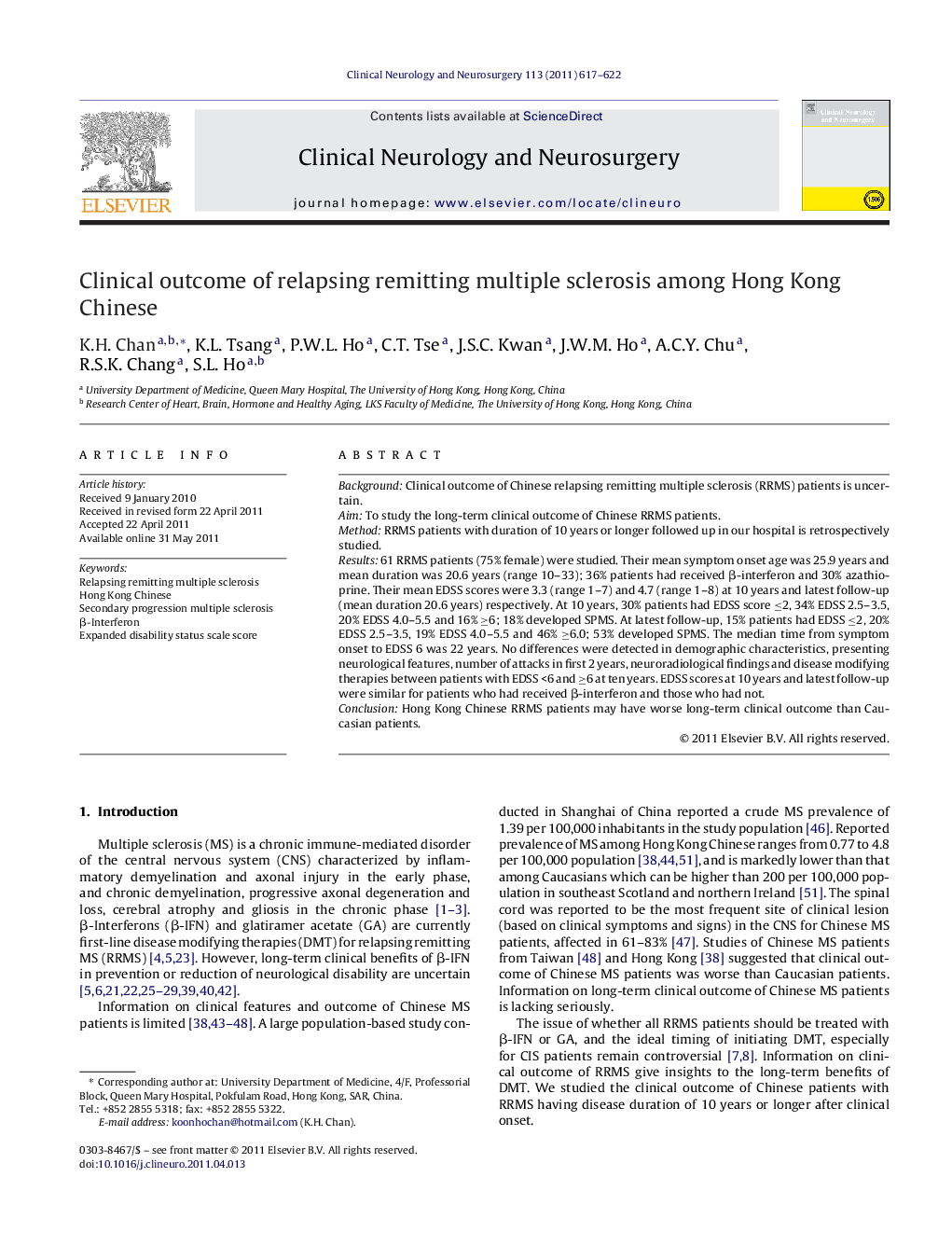| Article ID | Journal | Published Year | Pages | File Type |
|---|---|---|---|---|
| 3041015 | Clinical Neurology and Neurosurgery | 2011 | 6 Pages |
BackgroundClinical outcome of Chinese relapsing remitting multiple sclerosis (RRMS) patients is uncertain.AimTo study the long-term clinical outcome of Chinese RRMS patients.MethodRRMS patients with duration of 10 years or longer followed up in our hospital is retrospectively studied.Results61 RRMS patients (75% female) were studied. Their mean symptom onset age was 25.9 years and mean duration was 20.6 years (range 10–33); 36% patients had received β-interferon and 30% azathioprine. Their mean EDSS scores were 3.3 (range 1–7) and 4.7 (range 1–8) at 10 years and latest follow-up (mean duration 20.6 years) respectively. At 10 years, 30% patients had EDSS score ≤2, 34% EDSS 2.5–3.5, 20% EDSS 4.0–5.5 and 16% ≥6; 18% developed SPMS. At latest follow-up, 15% patients had EDSS ≤2, 20% EDSS 2.5–3.5, 19% EDSS 4.0–5.5 and 46% ≥6.0; 53% developed SPMS. The median time from symptom onset to EDSS 6 was 22 years. No differences were detected in demographic characteristics, presenting neurological features, number of attacks in first 2 years, neuroradiological findings and disease modifying therapies between patients with EDSS <6 and ≥6 at ten years. EDSS scores at 10 years and latest follow-up were similar for patients who had received β-interferon and those who had not.ConclusionHong Kong Chinese RRMS patients may have worse long-term clinical outcome than Caucasian patients.
